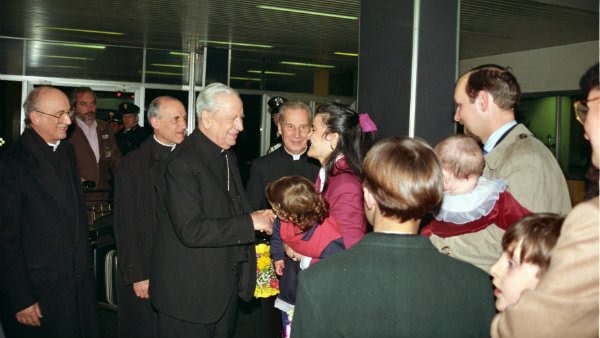“With the recent memory of Christ, obedient unto death, even death on a cross (Phil 2:8), embracing fully the divine plan, we can ask ourselves if we, when facing the specific demands God addresses to each of us, show the same full response. We know that God’s will is made known to us in the fulfillment of our family, social and professional duties; in constant fidelity to the commitments freely taken on in saying yes to the vocation; in the unexpected circumstances that crop up on our earthly path. Do we strive to recognize the divine will in our daily life? Do we embrace it with joy, when it entails a renunciation, whether big or small, of our perhaps overly human projects? Or do we have to admit (and may this lead us to be truly contrite!) that at times we merely accept it with resignation, with sorrow, with complaints, as something inescapable that we can’t avoid?
“Let us react energetically if we ever discover this hindrance in our heart. Then would be the moment to foster urgently the awareness of our divine filiation . . . and to redouble our prayer and penance, beseeching our God not to deny us his light and to lead us to understand that omnia in bonum! (cf. Rom 8:28), that everything works for the good of those who love him. Let us repeat slowly, savoring it, that filial prayer filled with fortitude that our Father taught us: ‘May the most just and most lovable will of God be done, be fulfilled, be praised and eternally exalted above all things. Amen. Amen’ (The Way, 691). And I assure you, as did our holy Founder, that you will find peace.” (Letter, May 1987)
